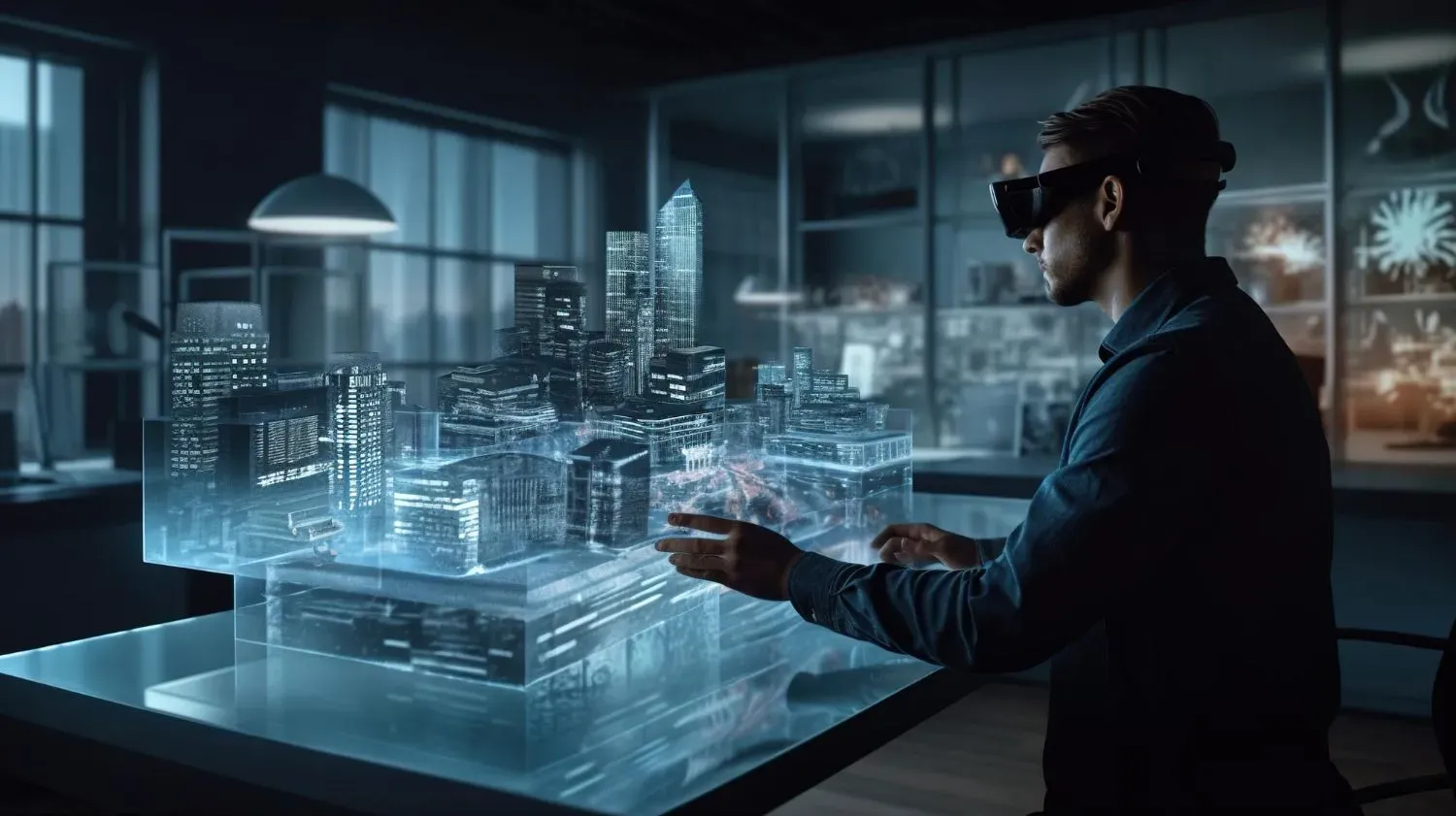The real estate industry is undergoing a significant transformation, thanks to the integration of advanced technologies like virtual reality (VR). Companies like Aurum Proptech are at the forefront of this revolution, leveraging VR to create immersive experiences for homebuyers. This blog will explore how virtual reality is redefining real estate, offering numerous benefits, and shaping the future of home buying.
I. Understanding Virtual Reality in Real Estate
Virtual reality (VR) technology allows users to experience and interact with a computer-generated environment in a seemingly real or physical way. In the context of real estate, VR provides potential buyers with a virtual tour of properties, offering a detailed, 360-degree view of homes without the need to physically visit them. This technology is particularly beneficial for those who are relocating, as it allows them to explore multiple properties remotely.
Aurum Proptech has embraced VR to enhance the homebuying experience, offering virtual tours that are accessible from anywhere in the world. By using VR headsets or even just a smartphone, buyers can walk through homes, explore different rooms, and get a feel for the space as if they were actually there.

II. The Benefits of Virtual Reality for Homebuyers
The incorporation of virtual reality in real estate brings numerous advantages for homebuyers:
- Convenience: Buyers can tour multiple properties from the comfort of their own homes, saving time and travel expenses.
- Detailed Visualization: VR provides a realistic and detailed view of the property, helping buyers understand the layout, size, and features better than traditional photos or videos.
- Informed Decisions: With VR tours, buyers can make more informed decisions by thoroughly exploring each property, identifying potential issues, and ensuring the home meets their needs.
- Emotional Connection: Experiencing a property in VR can help buyers develop an emotional connection, making them more likely to move forward with a purchase.
- Accessibility: VR technology makes it easier for individuals with mobility issues or those living in distant locations to participate in the homebuying process.
- Marketing and Sales: Real estate agents and developers use VR to create compelling marketing materials, attract more potential buyers, and close sales faster.
- Virtual Staging: VR allows for virtual staging, where empty properties can be furnished digitally to help buyers visualize how the space can be used.
- Customization: Developers can offer customizable virtual tours where buyers can modify elements of the home, such as wall colors or furniture placement, to see how different options would look.
- Training and Education: Real estate professionals use VR for training purposes, gaining a better understanding of properties and improving their sales techniques.
- Cost: Developing high-quality VR tours can be expensive, which may be a barrier for smaller real estate firms.
- Technology Adoption: Not all buyers are comfortable with VR technology, which can limit its effectiveness.
- Technical Issues: VR experiences require reliable hardware and software, and any technical issues can disrupt the viewing experience.
- Physical Sensation: While VR offers a realistic visual experience, it cannot replicate the physical sensation of being in a space, such as the feeling of a room's temperature or the sound of the neighborhood.
- Enhanced Interactivity: Future VR tours will offer more interactive features, allowing buyers to open doors, turn on lights, and even simulate different times of day.
- Augmented Reality (AR): AR, which overlays digital information on the real world, will complement VR, providing additional information and context during property tours.
- Wider Adoption: As VR technology becomes more affordable and user-friendly, its adoption will increase across the industry, from small agencies to large developers.
- Integration with AI: Artificial intelligence will be integrated with VR to offer personalized property recommendations and tailor the viewing experience to individual preferences.

III. How Virtual Reality is Revolutionizing the Real Estate Industry
The impact of virtual reality on the real estate industry extends beyond just home tours. Here are some ways VR is revolutionizing the industry:
IV. Overcoming Challenges and Limitations of Virtual Reality in Real Estate
Despite the numerous benefits, there are challenges and limitations to the adoption of VR in real estate:

V. The Future of Real Estate: Virtual Reality Trends and Predictions
As VR technology continues to evolve, its role in the real estate industry is expected to grow. Here are some trends and predictions for the future:
Conclusion
Virtual reality technology has transformed the real estate industry, providing homebuyers with immersive experiences and revolutionizing traditional practices. While there are challenges to overcome, the future of real estate looks promising with the continued integration of virtual reality into the buying process. Aurum Proptech is leading this charge, demonstrating how VR can redefine homebuying, making it more convenient, detailed, and engaging for buyers everywhere.

